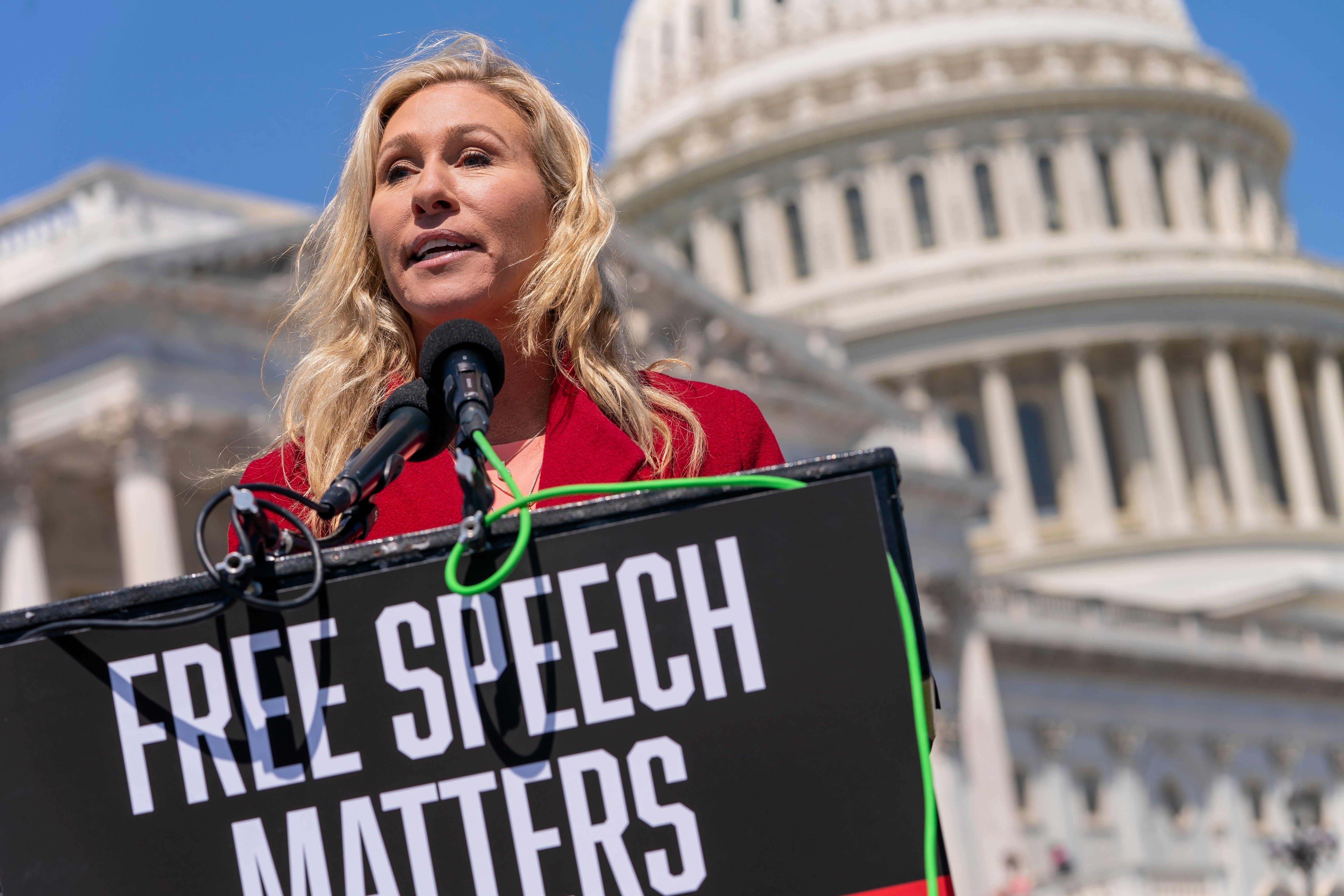Judge upholds Rep. Marjorie Taylor Green's eligibility
A judge in Atlanta has rejected an appeal by a group of voters who sought to make Rep. Marjorie Taylor Greene ineligible to run for reelection

Your support helps us to tell the story
From reproductive rights to climate change to Big Tech, The Independent is on the ground when the story is developing. Whether it's investigating the financials of Elon Musk's pro-Trump PAC or producing our latest documentary, 'The A Word', which shines a light on the American women fighting for reproductive rights, we know how important it is to parse out the facts from the messaging.
At such a critical moment in US history, we need reporters on the ground. Your donation allows us to keep sending journalists to speak to both sides of the story.
The Independent is trusted by Americans across the entire political spectrum. And unlike many other quality news outlets, we choose not to lock Americans out of our reporting and analysis with paywalls. We believe quality journalism should be available to everyone, paid for by those who can afford it.
Your support makes all the difference.A judge in Atlanta has rejected an appeal by a group of voters and affirmed the Georgia secretary of state's decision that U.S. Rep. Marjorie Taylor Greene is eligible to run for reelection.
The five voters from Greene's district sought to have her removed from the ballot, saying that she played a significant role in the Jan. 6, 2021, attack on the U.S. Capitol that disrupted Congress’ certification of Biden’s presidential victory. That was a violation of a rarely invoked provision in the 14th Amendment against insurrection or rebellion, they argued.
Represented by Free Speech for People, a national election and campaign finance reform group, the voters filed a complaint with Secretary of State Brad Raffensperger in March.
Greene was questioned extensively during a daylong hearing in April before Georgia Administrative Law Judge Charles Beaudrot, who ruled on May 6 that Greene should not be disqualified. Raffensperger immediately affirmed the decision.
The voters appealed in Fulton County Superior Court, where Chief Judge Christopher Brasher affirmed Raffensperger's adoption on Monday.
The voters said Beaudrot made four legal errors, but Brasher found that Beaudrot acted properly.
Free Speech for People said in a statement that Brasher ruled “with minimal legal analysis,” and that it has not decided whether to appeal to the Georgia Supreme Court.
The challenge to Greene's eligibility was based on a section of the 14th Amendment that says no one can serve in Congress “who, having previously taken an oath, as a member of Congress ... to support the Constitution of the United States, shall have engaged in insurrection or rebellion against the same.”
Ratified shortly after the Civil War, it was meant in part to keep representatives who had fought for the Confederacy from returning to Congress.
Beaudrot found that the voters hadn't produced sufficient evidence that Greene's actions before, during and after the Capitol siege encouraged and helped facilitate a violent attack on the U.S. government and democracy in violation of the U.S. Constitution.
Greene won about 70% of the vote in the May Republican primary, easily defeating five challengers who tried to unseat her. She faces Democrat Marcus Flowers in November’s general election.